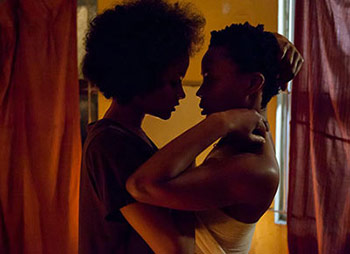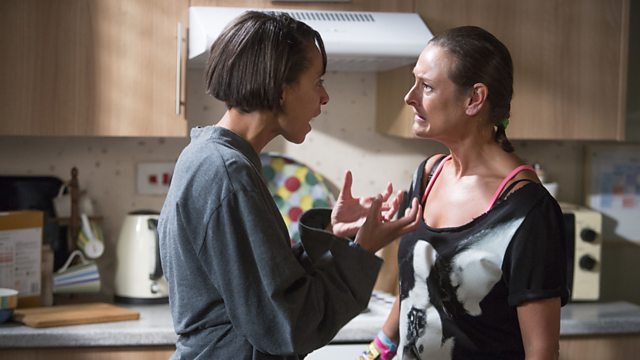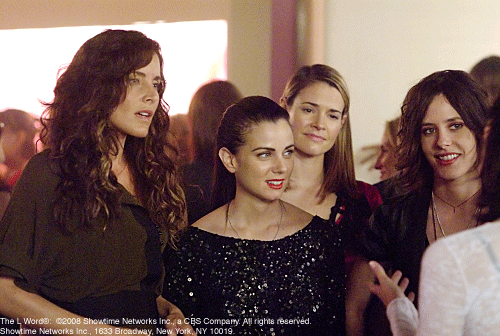I like to think of myself as a fairly ambitious person. I’ve always dreamed big, and I’ve always had a hard time separating my dreams from my reality. Or, at least I thought I did. Of course, as I’ve grown up, I’ve learned more and more things. That’s a big part of life, after all, just learning things.
I’ve learned some things that I really wish I’d learned a lot earlier – some of them dealing with my ambition and my (slightly unrealistic) expectations of success. After all, like most millennials, I was robbed of so many opportunities to earn things. My family helped instill a few that society at large had taken from me, but even they weren’t able to fully prepare me for the struggles of… The real world.
Don’t get me wrong. My parents did the best they could, and I appreciate the things they taught me. It’s not that they didn’t do a good job. It’s that nothing can really teach you quite as well as being stuck in a shitty situation can. I can pass on my wisdom, but I can’t learn the lessons for you – so I only hope you can heed my advice when the time comes for you.
1. A finished first draft is better than an unfinished masterpiece.
I’ve tried a million things over the course of my life, and very rarely do I actually follow through and finish what I start. There’s something to be said about taking a fresh start, but it’s nothing compared to the satisfaction of actually finishing something. I’ve learned that the desire to be perfect can keep me away from my dreams – and I have to give myself permission to be rough around the edges.
Reader, you have permission to be imperfect. Not just at some things; you have permission to be imperfect at everything. You should definitely try to do your best, but too many people compare their first attempts with someone else’s finished product – and this leads to a complete misunderstanding of how “talent” actually works. No one puts pen to paper and instantly becomes a best-seller. There are countless steps along the way, and the key to excellence is making those steps as small and easy as possible – and then tackling only as much as you reasonably can.
2. We are a combination of many things – but those things need to work with one another.
As humans, many of us strive to be the absolute best at something. But, in trying to achieve something, we completely neglect the rest of ourselves. Our life can’t be defined into just one area, and yet we tend to try and limit ourselves to just one thing. We’re an excellent mathematician or we’re an award-winning doctor or we’re just someone who fell off the path along the way, and we’re going to be those things someday. But we aren’t just one thing, we’re a bunch of things rolled into one. The trick is making sure those bunch of things all work well with one another.
Reader, you have permission to be complicated. If you want to be great at everything, you can be great at everything, as long as the things that matter to you go hand-in-hand. Try to narrow down a list of your top 25 life goals, and see if you can’t lump them into a few broader goals. If you end up with one goal that you can’t link with any others, try to think of how important it really is to you compared to the things you just discovered about yourself. If it really is still important, you’ll find a way to make it work out.
3. If you need help, for crying out loud, get help.
This applies to everything. If you’ve experienced death or trauma, seek therapy of some kind. If you need to lift something super heavy, wait for someone to help you. If it seems like your whole life is falling apart, ask someone trusted for advice. It’s not a sign of weakness, it’s a sign of wisdom – we need to learn how to defer to others. Not all problems can be handled by a single person, and that’s okay.
Reader, you have permission to ask for help. It doesn’t matter what you need help with. One of my biggest life mottos is “If you’re the smartest person in the room, you’re in the wrong room.” Remember how I said life was all about learning? You can’t learn the right way to do things unless you reach out to someone with more experience. It makes you a better person in the grand scheme of things.
4. Don’t go broke trying to act rich.
When I was 18, I got my very first credit card offer – and, because I was so tired of having no stuff, I very quickly used it up. Don’t do that. It is so hard to repair your credit – that is not what it’s there for! Instead, use that first credit card to make small purchases that you can easily pay off, and open a savings account for the things you can’t really afford, but really want. It’s not going to be easy, but the more you do it, the easier it gets.
Reader, you have permission to pay yourself. After all, that’s what you’re doing when you set money aside for the future – you’re paying future you with something you have now. Then, if Future You falls on hard times, you’ve already got a leg up because of the planning you’ve done in the past. Even small amounts will add up over time – and it balances out to a lot more little goals, which we’ve already discussed are easier to accomplish and easier to maintain.
5. There is absolutely nothing wrong with having extra bank accounts – in fact, it helps.
If your bank lets you open a savings account, open a savings account. Enroll in automatic transfers, if possible, and set a realistic goal. If your bank will let you open two savings accounts, or if you can open another savings account at a different bank, do it. This might seem like more places to check, but the fact that it’s not as easy to check them means you’re less likely to touch them.
Reader, you have permission to split up your money. Keeping one savings account for “emergency expenses” – and preferably building it up enough to live comfortably for about six months – and a separate savings account for “shiny-itis” (the compulsion to buy the newest things that catch our attention). If your bank offers automatic “keep the change”-type deposits into your savings account, this is a perfect way to “earn” the nice things you want without any extra effort on your part.
6. Passion doesn’t come from thin air.
When you were six years old, what did you want to be when you grew up? I wanted to be a veterinarian. Then, when I was around 8, I wanted to be a secretary. Then I turned 10 and I wanted to be a country music singer… Then I turned 11 and got tremendous stage fright and never sang in front of an audience again. (That all makes it sound more dramatic than it really was – I just got really shy after puberty.) The things you want to do are going to change – it’s more important to find something that makes you happy, and find a way to turn it into the life you want.
Reader, you have permission to follow your dreams – but you also have a responsibility to work for them. You can’t just find your passion and automatically be content with it for the rest of your life. You choose one thing that makes you happy, and then you decide that you are going to be passionate about it. I’ve spoken to people who worked at call centers, who absolutely loved it and thought it was their calling. I’ve talked to people who work with developmentally disabled adults, and they think that is their calling. Did they seek out these jobs because it was something they wanted to do? No – they got the job, and dedicated themselves to being the best at it they could be. Any job can be your passion, if you are dedicated to doing it the best you can.
7. Make peace with your past, and forgive when you can.
I’m not going to pretend I understand what your home life was growing up – but most of us can pick apart things that were pretty bad. It’s a part of the human experience, and while I’m not saying you should allow people who were abusive toward you back into your life, you should forgive the people who simply didn’t know better. Not all grudges are meant to last forever, and there really is no such thing as a perfect history. Even textbooks are changed to suit their target audience.
Reader, you have permission to let go. Only you can decide what you can truly forgive, but remember that forgiveness isn’t the same as acceptance. You don’t have to let these people back into your life or your home, but you need to release yourself from the negativity of the situation. Forgiveness isn’t about accepting what they did to you and allowing it to happen again. Forgiveness is about letting go of the burdens.
8. You can’t run away from your problems – but it’s okay to try.
I used to get flustered a lot, and bail on my circumstances. I cherished the idea of the fresh start, and would vow every time that this time will be different. But then I’d keep the same shitty habits that attracted my problems in the first place, so of course, the problems would come back, just as strong as ever. But each time I flew away from the place that I called home, I learned new things about myself, eventually leading to the person I am now: Someone who seeks out alternative solutions to fix my situation, instead of just changing it.
Reader, you have permission to travel the world. Try to set up your new life in a completely new territory, and it’ll be easier to see the bad habits that you have in place, and start thinking of ways to fix them. If you’re travelling further than you’re used to traveling, you can even take advantage of a completely new perspective: Being somewhere new takes you apart from your every day and helps you see a new side of things.
9. There’s no such thing as easy money.
I have had a lot of different jobs over the years, often two or three at a time because I’m insane, apparently. I did door-to-door sales, internet boutiques, retail jobs, online survey sites, even spent some time hustling things to my friends and classmates. While I had a lot more money when I was doing the unsavory things, I had more problems than I thought I could handle – I was actually happier working minimum wage in an honest way. Trying to rush to the top of financial success faster than I was legitimately earning took quite a toll on me.
Reader, you have permission to do things the hard way. Hard work, honesty, and integrity really are the keys to getting ahead, and anyone who tries to tell you otherwise is really just trying to sell you something. Every single person who has ever worked their way up from nothing has done it the hard way, somehow – either they’ve experienced the struggles on the way up, or they’ve had to fight to keep what they had once they got it. It’s all about positive habits.
10. Life is joyful – don’t let bitter people tell you otherwise.
Not everyone lives a great life, and I can definitely understand that you’re going to get down on yourself sometimes. But you need to roll with it, and focus on the positives in your life – otherwise, you’re just going to be miserable. And dealing with people who are miserable will make you miserable. The best way to make your life happier is to network with people who are happier and more successful. Don’t worry, the most successful people are willing to take another under their wing when appropriate.
Reader, you have permission to be happy, even if someone else has things you want. You can’t make yourself happy by being jealous of others, so you’ll need to use them as a source of inspiration, not a source of more misery.
11. You become the average of the people you hang out with the most.
Your parents might have been onto something when you were younger: Your friends play a huge role in determining how you’re going to turn out. It’s been said that you become the average of the five people you see most often – so it’s important that you make those people good influences over your life. You’ll want to surround yourself with happy people in all walks of life, and stop comparing yourself to their progress – after all, you haven’t walked the same path they have.
Reader, you have permission to clean out your friends’ list from time to time. I’m not just talking about your social media friends list, although that’s important too. You’re not bound to people just because you’ve known them for most of their lives. If they’re hanging back and not making the best of things, it’s much more likely that they’ll drag you down than that you’ll bring them up to your level – learn how to let go.
12. You’re never too old to learn from someone older.
I’m not sure exactly what the “normal age” is when we stop listening to people who are older than we are, but realistically, that time should never come. When you seek advice from people with more life experience than you have, they have a different perspective than you do. Even if they have the wrong answers, their wrong answers are based on more experience and wisdom than what you have, and that is already valuable.
Reader, you have permission to benefit from someone else’s knowledge. We’ve already established that there’s nothing wrong with asking for help – just make sure you’re making that help work for you in the best way possible. You deserve to not struggle as much as those who came before you, but you will need to reach out and look for the answers.
13. Happiness and success start with a willingness to try.
In many areas of life, we learn that growing up teaches us what we like and don’t like. That’s definitely true, and I’m glad I figured that out early enough. But there’s never going to be a time when you don’t still have to try new things. The definition of insanity is repeating the same actions and expecting a different result. Sure, there might be more than one path to success, but a path to unhappiness isn’t going to take an unexpected turn until you do.
Reader, you have permission to try new things – and you have permission to enjoy them, even if it’s something you never pictured in your life. All too often we feel limited by the things we “should” and “shouldn’t” do, and we ignore what we want or need to do. No one can write the rules for your life except you.
14. Get dressed and show up, even when you don’t feel like it.
Believe it or not, it doesn’t matter if you feel like it – discipline comes from doing the things that you don’t want to do. You have to cultivate it through a lot of practice. I routinely go to work in my pajamas, so I think it’s safe to say it’s not always necessarily to take this one literally, but when getting dressed will make a difference, make sure you get dressed! (I think it’s actually proven that getting dressed in business attire makes entrepreneurs more successful, but I think it’s mostly a mind trick.)
Reader, you have permission to craft the life you want. You have permission to build an empire so awesome that you don’t need to get dressed every day. But in order to do that, you have to put in the hard work now, while you’re still young. You’re going to have to push yourself to be disciplined, if it doesn’t come easily to you, and you’re going to have to work to relax at a later point.
15. You can’t fix your life until after you fix your habits.
How many times have you told yourself that your life is going to get better next week, or next month, or maybe even next year? Some people say those things, and their entire life turns around right when they said it would. Others seem to miss the train and get stuck in the same place they’ve been in. It’s easy to say the first group has luck, but it’s more likely that they’ve got grit. It takes a lot of courage to change your bad habits, especially when those habits turn into addictions.
Reader, you have permission to leave your habits behind. You don’t have to keep being the person you were before, just because you feel stuck there now. When we say that people can change, it’s important to realize that they need to actively seek out that change, and make it a huge part of who they are as a person. Billions of people have done it throughout the history of the earth, and you can, too.
16. Make changes when you feel in control, so you don’t need to make them when things are out of control.
You know you have a problem with procrastination when you put off fixing a problem that has the potential to destroy your life. We know it’s so much easier to fix a problem while it’s still small, but instead, we tend to let them go until we can’t handle it anymore – and then we get overwhelmed, because it’s more than we can handle. I wish I’d figured out at a much younger age that fixing things when they’re still minor roadblocks is so much easier than trying to reroute an entire freeway. (I feel like I’m off my analogy game today, but I think you know what I mean.)
Reader, you have permission to handle problems early. Tackling things as soon as possible gives you more time to think of a solution, as long as you’re actually thinking of a solution. In some cases, it might even be necessary to come up with a temporary fix while you think of the more permanent fix. You can’t do that if you let things get to where they’re almost unfixable.
17. Make time for yourself every now and then, no matter what everyone else says.
I’ve always had a really bad habit about waiting until I’ve got everything just right before I’ll start something. The only problem is, I get everything just right, and then something else comes up, so I put the thing off again. That results in me rarely doing any of the things I want to do, because I’m too busy working on the things I have to do. I end up getting super burnt out and have to take like four days of complete time off to reset my internal clock and get back to the right work rhythm. Falling behind can take you days out of the way, when just taking a few hours to yourself can often prevent the problem entirely.
Reader, you have permission to take time off. Being rich isn’t the most important thing in the world, and you’re more likely to find success if you do cultivate a life of balance. It seems pretty counter-intuitive, but trust me, you’ll be much happier if you’re not spending all your time at work. Take time to refocus, before it becomes a dire need, and forgive yourself when you start to slip up.
18. You can’t count on other people.
It sucks, but it’s true. You can’t ever realistically expect something from another person. If you trust someone, you may expect them to do the things they say they will, but there’s always a chance that they won’t follow through. You need to learn how to move past that, in order to be at peace with yourself. It’s not a matter of not trusting them, either – it’s a lesson to not delegate things you can’t handle being messed up. It’s a lesson in releasing control. It’s a lesson I’ve needed to learn since I was really young, and it didn’t sink in until I was in my 20s.
Reader, you have permission to give up control sometimes. Things aren’t ever going to be perfect, and if they are perfect, there’s probably something that you’re not seeing. Try not to focus on the things that went wrong, and instead direct your attention to the things that went right. Use your own experience to form your beliefs going forward, and never stop trying to be the best you can be.





























